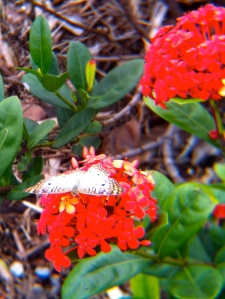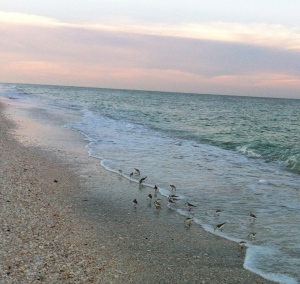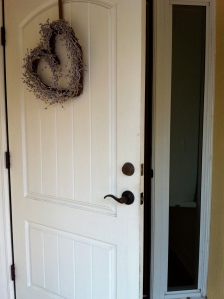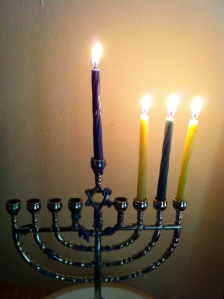Courageous Love we join together in remembrance today, in honor of all those who have died defending their country, in honor all those who have sought to serve freedom and human rights and dignity and sacrificed and died in that service. Courageous Love, let us not forget them, but remember our friends, our family, and our neighbors. Let none who have so sacrificed be a stranger to us. Strengthen us to carry on their stories, to care for their friends, their families, and their neighbors as our own, to give the help they would have given, to mentor the children they would have mentored, to love boldly and truly in their memory. Bring comfort to the families and friends who mourn, waking in the night aware only of their losses, yearning for what can no longer be. Bring comfort to the friends and family who wonder why, who struggle with loneliness, who need others to hold fiercely to the memory of those who are lost. Let us learn the lesson of the great cost of war and from that learn how to be better neighbors to one another, how to love past our differences, how to bring a free peace and the chance for a life of dignity in tribute to and in memory of those who died doing the same. Courageous Love, sometimes we have awful sacrifices to endure; grant us the courage today to help one another endure and find our way in memory to a creating a more loving, a more merciful, and more just world. Amen.
Memorial Day 2012 Prayer
Posted in holidays
Tagged aspiration, meditation, memorialday, prayer, remembrance, service, Unitarian, Universalist, uu
Rachel Sabbath Prayer: Mothers Day 2012
The Rachel Sabbath is a weekend of learning and prayer and commitment to community action for global maternal health. To learn more about the Rachel Sabbath, or help out, click here for the Religious Institute.
A Prayer for the Rachel Sabbath 2012
Lover of Life strengthen us in our reverence for life and our care for those who bear new life, who bring us the present and the future. On this Mothers Day weekend, let us give thanks for those who brought us into the world, and thanks for those who raised us, thanks for our parents whether blood or adopted or chosen, thanks for those who mentored and supported and sustained us in good times and in ill. Let us give thanks and with our thanksgiving reach out to help one another in raising this new generation, in bearing each other up and on as some among us bear children. Let us remember those who are mothers in dire circumstances, those who struggle to parent, those who struggle for life, and in our remembering, may we recommit ourselves to their care, their health, and their friendship. Lover of Life we have so many blessings to give thanks for, and so many more blessings to care for, grow, and share. On this Mothers Day may we bring blessings to the bearers of life, to the caregivers and caretakers, the blessings of health and help, friendship and care, on this day and in every day of our lives. Amen.
Posted in holidays
Tagged aspiration, maternalhealth, meditation, prayer, rachelsabbath, Unitarian, Universalist, uu
Why Shakespeare for Girls
When I was a teenager, I spent most of my nights and weekends at the Davis Discovery Center, which was a county government run theatre for children and teenagers. There were all sorts of programs at Davis: theatre, art, dance, and music classes. I gravitated to the Shakespeare classes. Every Saturday afternoon, about 20 teenagers would get together to workshop Shakespeare, led by John Heisel, who was also the Artistic Director of the Rosebriar Shakespeare Company.
Those classes were a very stable influence in a very unstable time – once a week, I got to be Beatrice or Helena and I became elegant, witty, poised and beautiful. I was a pretty socially awkward, often depressed, acne-ridden teenager, so that transformation was life changing in many ways. Saying those words made me someone else for a few hours – someone whose life was much more managed than my own. I created friendships that stay with me, and we will still reference old jokes created in those hours where two dozen unstable teenagers became kings and queens ; heroines and heroes. As a group we were transported to somewhere wonderful. We were a bunch of often extremely depressed teens made whole by performing Shakespeare for two hours a week.
From taking classes, I auditioned for shows both with Rosebriar Shakespeare Company and with the Davis Discovery Center itself. Because of my physical type (5’10’’ and slightly overweight), I was often cast in supporting roles. I played Lady Montague in the Davis production of Romeo and Juliet; for Rosebriar, a whole slew of third spear carrier types, starting with Lucius in Julius Caesar. I eventually realized that if I perused acting, I would be relegated to character roles, and started to write.
While I think writing was the right fit for me in this profession, I never forgot the times when I got to play Beatrice, my favorite Shakespeare heroine. It was one of the few times during my teenage years where I really felt worthwhile.
Flash forward past college, when I met the amazing Reina Hardy. Reina’s primarily a playwright, but she had co-created The Viola Project, a series of Shakespeare workshops for girls. It was like my teenage experience – but even better. Girls not only got to play the amazing female roles of Shakespeare, they got to play Hamlet, Richard III, and Macbeth. How cool is it to have a place where girls can not only learn to feel beautiful, elegant, and poised – but where they also got to play roles where they could be strong and demanding or play roles that more accurately reflect their experience, such as Hamlet, the ultimate indecisive teenager?
This is why I wanted to borrow The Viola Project model for City of Refuge. There are so many ways that girls are beaten down in our society. There are all these messages telling girls that they are not good enough. Why not have a refuge, where for two hours a month, they can become anyone from Beatrice to Richard III? It changed my life when I was 16, and hopefully I can help change the lives of others.
So starting this Saturday March 17th at 5:30 PM at the Ft. Lauderdale Children’s Theatre, girls are going to speak the speech, go once more into the breach, and give their kingdoms for a horse. [UPDATE as of 3/16/12 – We have to postpone the project. For more information, contact Andie Arthur – see below.]
This is planned to be the first in a series of monthly workshops. If you can’t make it this time, we’ll soon be posting the next location and date. We want this to be an ongoing project, to change the lives of girls one role at time.
If you have any questions or wish to volunteer, please contact Andie Arthur at andie.arthur@gmail.com.
Posted in mission, service projects, Uncategorized
Service Project: Rosalind’s Adventure – Shakespeare for Girls
Rosalind’s Adventure: Shakespeare for Girls
Inspired by the Viola Project in Chicago, Rosalind’s Adventure is a series of performance based workshops for middle school and high school girls, where they will learn to speak the speech, go once more into the breech, and give up their kingdom for a horse. Named for one of Shakespeare’s kick butt cross-dressing heroines, Rosalind’s Adventure is an exciting way for girls to explore whomever they want to be, unbound by race, gender, or age — from Lady Macbeth to Hamlet.
Have a deep love of Shakespeare? Want to volunteer? Please contact Andie Arthur at andie.arthur@gmail.com. If you have specific qualifications (such as experience teaching stage combat or if you have spent a decade grappling with the text of Cymbeline), please let her know — so we can best use your gifts.
Our first workshop will be at the Ft. Lauderdale Children’s Theatre on Saturday March 17th from 5:30 to 7:30 PM.
Posted in mission, service projects
Tagged RosalindsAdventure, service project, Shakespeare, volunteering
Generosity Day – Today and Every Day
How do we truly know we are loveable and loved?
Meeting generous words and actions helps.
One of the ways we show love is to say ordinary extraordinary things.
We notice what those we love are doing and tell them in encouraging ways.
Another way we show love is through ordinary extraordinary actions.
We do things for and with the people we love from a generous, open-hearted place.
Truth is that one of the ways we share the love we know from the Holy is to be loving with people we do not know with total strangers.
Have you ever been the recipient of someone’s generous, unexpected act? from someone you did not know?
One time, after my wallet was stolen, a stranger fed me and bought me a train ticket home. It changed my life. I’ve been feeding people I don’t know, people who are scared and lost and hurting, ever since then. Generosity really does make a difference.
One time, after not seeing a former friend for many years, that friend reached out and sought to repair our relationship. It was a generous and bold act. Generosity really does make a difference.
One time…my life is full of those separate ordinary extraordinary experiences of generosity.
Generosity is one of the ways we show love, our love and the love of the Holy.
Today, will you join others in Generosity Day?
Tomorrow, will you carry on that joy?
Your Neighbor’s Dreams
How are you caring for your neighbor’s dreams? Is this a startling question for you? How do you answer it? Do you know your neighbors well enough to know their dreams? How different are your neighbor’s dreams from your own? How similar?
Although caring for our neighbor is one of the ways we care for and live our love for the Holy, many of us have learned that caring for our neighbor involves giving time in service to good community and ecological causes, giving money to care for those struggling with poverty, imprisonment, and illness, paying taxes to support healthy communities and a healthy world, and keeping the volume of our personal soundtrack at a personal level, at least during the wee hours of the morning. Our neighbor in all of these scenarios is either abstract or an object, not real people like us with real struggles and real celebrations and real dreams.
As we answer the call to live humbly, love the Holy, and love our neighbors (strangers, enemies) as ourselves, how can we do this without knowing and having respect for our neighbors’ dreams? The neighbors we know, more of us call friends and consider those people in the “ourselves” category, a category that includes friends, kin, country, and self.
Do you know your neighbor’s dreams well enough to care for those dreams? Do your neighbors know yours well enough to care for them? Living, healthy, vibrant communities are ones where we can say yes to both of those questions – for they are communities where we connect past the “I” and live into steadfast love of the Holy, present and calling us back to the courage to be vulnerable as well as the courage to care.
Posted in multicultural, values
Tagged attention, community, courage, dreams, faithful risk, Holy, love, neighbors, presence, steadfast love
Evangelism Weekend
City of Refuge is working with the Beloved to help end hell on earth.
One of the ways we’re answering that call is building a multicultural, multiclass, multigenerational faith community one heart at a time.
If that’s your mission too, we would be honored and delighted to have you join us on an evangelism weekend in western Broward County, Florida.
February 17-20, 2012
This is a weekend for those new to door-to-door evangelism. You can learn about evangelism and help an emerging Unitarian Universalist faith community build toward launch. More details to follow. If you’re interested in participating in the weekend, contact our Teaching Pastor, Rev. Naomi – revnaomi@bellsouth.net or on Twitter @RevNaomi
Posted in mission, Uncategorized
Extraordinary Takes Ordinary Together
Extraordinary people do work with other extraordinary people to accomplish amazing things – for example, the Rev. Dr. Martin Luther King, Jr. and Rabbi Abraham Joshua Heschel working together for peace, equality, and justice.
But extraordinary people mostly work with ordinary people like you and me to accomplish amazing things. Ordinary people show up when the going is tough, when life is extra dangerous, when the air reeks of fear, and when the dull tedium of staying fast grinds away at our spirits. These ordinary people are the folks whose generous creative daily endeavors really make the extraordinary possible.
Extraordinary happens when ordinary works together in generous, courageous, creative, steadfast love.
Civil Rights came about in the United States – and continue to be defended when they are threatened, such as with recent efforts to disenfranchise more people – because ordinary people show up generous and present in every day. Irena Sendler was able to be part of saving more than 2500 children in Poland during the Holocaust because of ordinary people who showed up and risked everything. Lives have been saved through crowd-sourcing peace projects like PeaceTxt. Lives are being changed through multifaith youth leadership working together with the Interfaith Youth Core. Name a life-changing project, program, or community event. Chances are that was brought to you by ordinary people committed to extraordinary generosity and steadfast love.
Are you a Jesus follower? We have the ordinary people Joseph and Mary to thank and so many more ordinary people along the way. Is Moses one of your sources of inspiration and wisdom? We have rebellious midwives and resisting parents to thank, and many, many more ordinary people who were with Moses. Who first was with the Prophet Muhammed (PBUH)? Ordinary people were – a slave named Abu Bakr and the Prophet’s wife, Khadija, and a child, Ali Ibn Abou Taleb. Look to your faith tradition: who are the ordinary people showing up in steadfast love to help make the extraordinary happen?
One of our blessings is that we cannot do extraordinary things alone. We need each other, our diverse gifts, our differing experiences, our varied ways of being to accomplish extraordinary goodness. We can contribute to trouble together. We can contribute to generous compassion and courageous love together.
What you do can make a real difference. What you don’t do makes a real difference. How will you show up today, tomorrow, and next week for the extraordinary goodness that can happen through steadfast love?
Posted in mission
Tagged action, civil rights, commitment, community, deeds, extraordinary, goodness, ordinary, Shoah, steadfast love, working together
Heri Za Kwanzaa
Heri za Kwanzaa! Happy Kwanzaa!
This post is for intentionally multicultural communities celebrating Kwanzaa. As an intentionally multicultural faith community, the Unitarian Universalist Association encouraged faith leaders to learn more about and honor Kwanzaa this year.
To learn more about Kwanzaa, visit the founder of Kwanzaa’s website
http://www.officialkwanzaawebsite.org/index.shtml
Heri za Kwanzaa! Happy Kwanzaa!
May you have a wonderful Kwanzaa, whether for the first time or as a family tradition! May our healthy multicultural faith communities honor the Nguzo Saba and grow stronger in our diverse wisdom and gifts!
Posted in holidays, interfaith families, multicultural, multifaith
Rededication
8 Nights of Hanukkah Blessings for Interfaith Families & Multifaith Communities
Hanukkah sweeps in tonight inviting all of us living in interfaith families and multicultural communities to honor the light shining boldly from each window, declaring a house of faith, a house dedicated and committed to the Holy, a house living and thriving in Jewish wisdom.
We need fortitude, forbearance, and fierce compassion to live in healthy interfaith families and multicultural communities. We need to be dedicated to the sources of wisdom, faith, and culture that vivify and guide each and all of us in reverence and faithfulness. There is no room for smashing the temple, desecrating the sacred, or dishonoring and denying what calls us to serve in steadfast love, humbly, and for merciful justice.
In addition to the traditional blessings each night when lighting the menorah, we may also choose to add another blessing – the blessings we choose each day in loving interfaith families, the blessings we choose to create in healthy multicultural communities. These additional eight blessings are offered in that spirit, as we turn again in dedicating ourselves to the Holy this Hanukkah.
1st Night
Blessed are You, Beloved, Keeper of the Whole, Creator of this marvelous and diverse world! You bless us with our differences, teaching us each day to choose wisely and preserve what is good. Blessed are You and your bearing us to this time together!
2nd Night
Blessed are You, Holy One, who creates a way where none has been before, a way of hope, a way of turning, a way of steadfast love with all peoples. May we light this way with you, miracle by miracle, wonder by wonder.
3rd Night
Blessed are You, Beloved, who make us part of your story, keepers of your commandments, builders of your way of steadfast love.
4th Night
Blessed are You, Holy One, who gives us every good and wonderful gift, including the gift of this family, this diverse and miracle-filled world.
5th Night
Blessed are You, Beloved, who offers us the blessing of turning back to you, rededicating our hearts each and every day.
6th Night
Blessed are You, Holy One, who has given us the gift of responsibility, the examples of our ancestors, and the health and goodness of this life to tend.
7th Night
Blessed are You, Beloved, who empowers all in your service, for you so blessed Judith and Esther, Ruth and Naomi, Tamar and Deborah, Hagar and Sarah, and so many, many more.
8th Night
Blessed are You, Holy One, Keeper of the Whole, Creator of this marvelous and diverse world. Blessed indeed are the lessons and wonders, the miracles and steadfast love that fruit and feed and blossom in your multicultural, diverse and splendid creation!
May the blessings of Hanukkah inspire us all and turn us in rededication to the service of Steadfast Love.
Posted in holidays, interfaith families, multifaith
Tagged blessings, Chanukah, Hanukkah, interfaith, multifaith, spiritual practice, Unitarian Universalist

















